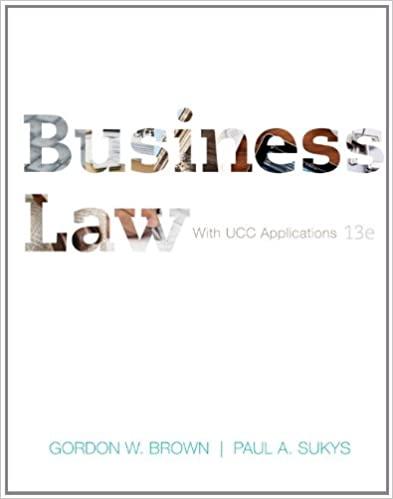Several businesspeople secured a contract with the state of Massachusetts that permitted them to construct a bridge
Question:
Several businesspeople secured a contract with the state of Massachusetts that permitted them to construct a bridge spanning the Charles River. The businesspeople intended to charge a toll for passage over the bridge to recover the expense of building the bridge and make a sizable profit off its operation.
Later, another group of businesspeople made a similar contract. They too were permitted to build a bridge and charge a toll. There was, however, a sixyear limit on the tolls that would be charged on the second bridge, transforming it into a free bridge after the end of the six-year period. The first group of businesspeople realized that the existence of a free bridge would make their bridge worthless.
Accordingly, they sued to prevent the second bridge from being constructed. They argued that the original contract that they had negotiated with the state implied that no other bridge would be built. The second group argued that because there was no explicit agreement in the first contract preventing a second bridge from being built, the court, under the Contracts Clause of the Constitution, could not impair the rights they had freely negotiated under the new contract to build a second bridge. The case ended up in the United States Supreme Court. How did the Supreme Court decide the case? Explain. Proprietors of the Charles River Bridge v. Proprietors of the Warren Bridge, 11 Pet. 420 (USSCt. 1837). See also L. Friedman, “Economy and Law in the Nineteenth Century,” Law in America (New York: The Modern Library, 2002), pp. 49–54.
Step by Step Answer:

Business Law With UCC Applications
ISBN: 9780073524955
13th Edition
Authors: Gordon Brown, Paul Sukys





